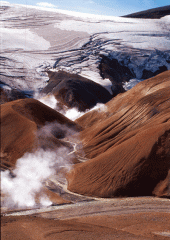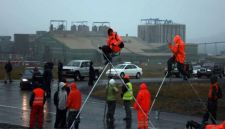'Miriam Rose'
Tag Archive
Feb 20 2017
2 Comments
ALCOA, Century Aluminum, Glencore International, Helguvík, Hvalfjörður, India, Kárahnjúkar, Miriam Rose, Pollution, Rio Tinto Alcan, Workers Rights
A special report for Saving Iceland by Miriam Rose
In 1969 the first of three aluminium smelters was built in Iceland at Straumsvík, near Hafnafjörður, on the South West side of Reykjavík by Alusuisse (subsequently Rio Tinto-Alcan). In 1998 a second smelter was constructed by Century Aluminum (now a subsidiary of controversial mining giant Glencore), at Hvalfjörður near Reykjavík, and in 2007 the third, run by Alcoa, was completed at Reyðarfjörður in the remotely populated East of the country. The Icelandic Government had been advertising the country’s vast ‘untapped’ hydroelectric and geothermal energy at ‘the lowest prices in Europe’ hoping to attract jobs and industry to boost Iceland’s already very wealthy but somewhat fishing dependent economy. The industry, which would permanently change Iceland’s landscape with mega-dams, heavy industry scale geothermal plants and several kilometer long factories, was promoted by the Icelandic Government and the aluminium companies as ‘good employment for a modern age’. However, ten years after the flagship Alcoa Fjarðaál project was completed, unemployment is higher than it was in 2005, and Iceland’s economy has become dependent on an industry which is vulnerable to commodity cycle slumps and mass job losses. Worse, the price charged for Iceland’s energy is tied to the price of aluminium and analyses of the country’s 2008/9 economic crisis suggest it was exacerbated by the poor terms of Iceland’s late industrialisation. Yet demands for further industrialisation remain, and more than 1000 Icelanders are employed in the aluminium sector.
This article exposes the conditions inside Iceland’s aluminium smelters based on interviews with workers conducted in 2012. The stories from two smelters share correlating accounts of being forced to work in dangerous conditions under extreme pressure, and without adequate safety equipment, leading to serious accidents which are falsely reported by the companies. These shocking allegations require serious attention by the trade unions, Icelandic government and health and safety authorities. This especially in the current context of labour disputes with the aluminium companies, alongside revelations about the same companies’ tax avoidance schemes and profiteering in the country. Read More
May 24 2011
5 Comments
Bauxite, Corruption, India, Mining, Miriam Rose, Orissa, Pollution, Red Mud, Repression, Samarendra Das, Vedanta
From Miriam Rose
On 16th May after heavy rain, toxic red mud poured from a breach in one of Vedanta’s Lanjigarh refinery red mud ponds, spilling onto the village below. The next day landless people displaced by the project held two blockades demanding adequate compensation; a five day walking protest ended with a meeting of 500 people on the threatened Niyamgiri hills; and the funeral of a tribal movement leader, killed by factory pollution, was held. Two months before Vedanta’s often-subverted AGM this will be bad news for the company. This is a direct report from the scene. Read More
Apr 14 2011
4 Comments
ALCOA, Corruption, Democracy deficit, Economics, Energy Prices, Greenland, Impregilo, Jaap Krater, Kárahnjúkar, Landsvirkjun, Miriam Rose, Workers Rights
By Miriam Rose
After many years of preparations the Greenlandic government say the final decision on Alcoa’s proposed smelter will be taken at the spring 2012 of the parliament. It is more likely, as the global history of the industry and the evidence in Greenland tells us, that the decision has in fact already been made undemocratically behind closed doors, despite the decreasing support of the Greenlandic people. In fact Alcoa and the Greenland government are so keen on passing the project that they have just hired an eighth employee at their national company Greenland Development- formed to enable the industry to go ahead. Juaaka Lyberth’s explicit remit is to influence public opinion on the smelter through the media. Greenland Development paints a rosy picture of an aluminium future for Greenland, but will their promises of prosperity come true? A comparison to Alcoa’s Fjardaal project in East Iceland suggests that many will not. Read More
Jan 29 2011
1 Comment
ALCOA, Bauxite, Greenland, India, Mining, Miriam Rose, Orissa, Rio Tinto Alcan, Samarendra Das, Saving Iceland, Trinidad & Tobago, Vedanta
These news about Dongria Kondh’s victory against Vedanta are not recent, but from August 2010. Unfortunately we were not able to publish the story until now.
Miriam Rose
After 13 years of continuous battle, the people’s movements to save the Niyamgiri hills from bauxite mining have won their land and livelihood back from the jaws of extinction. Niyamgiri is one of a series of threatened bauxite capped mountains in Orissa. On August 21st 2010 a review of the Vedanta mining project carried out by the Ministry of the Environment exposed the company’s “total contempt for the law”, having violated a number of environmental regulations, and revealed “an appalling degree of collusion” by local government officials with Vedanta. A few days later Environment Minister Jairam Ramesh called a halt to the project. Read More
Jul 16 2010
4 Comments
ALCOA, Cultural, Greenland, hydropower, Kárahnjúkar, Miriam Rose
Miriam Rose
Climate change has made Greenland the next industrial frontier, but at what cost?
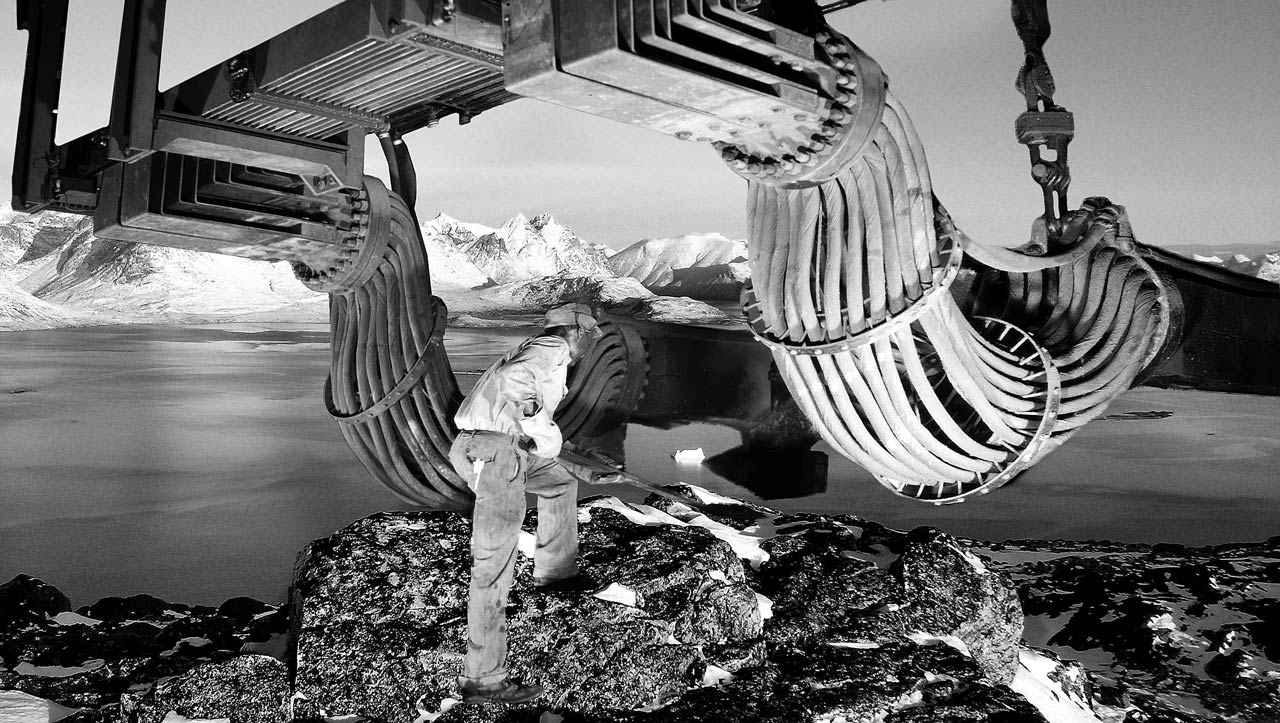
Humanity is in denial. We know that our hyperactive extraction of fuels, metals and minerals, and their dirty processing, consuming and dumping for our consumer ‘growth’ society is killing the planet and ourselves. We also know that all of these sugary treats are finite. But like an insolent toddler we continue; more and more, faster and faster – running in denial from the planetary spanking that is undoubtedly coming our way.
I have often hoped that the global emergency of climate change, combined with the inescapable reality of peak oil would wake us up from this selfish resource-gorging, and perhaps it still will before it is too late (too late: I.e tomorrow? 2012? 2020? a few months ago?). But in the meantime, nature has given western capitalism one last laugh. As the ice drips and cracks from Greenland’s white mass it is exposing a treasure trove of minerals, metals, ores and oil (one of the highest concentrations in the world), and plentiful hydro-power to help us heat, break and alter them into things we ‘need’. Just as the candle wick flares and gutters on our oil-driven consumptive society Greenland’s bounty has given it one more chance. One last bright flame, to hide from us the surrounding darkness.
Read More
Jul 15 2010
Bauxite, India, Miriam Rose, Orissa, Repression, Vedanta
 Orissa is the most mineral rich state in India. It is green and fertile, a patchwork of tiny fields and thickly forested mountains with waterfalls tumbling over their red rocks. Like many of the world’s remaining areas of natural fertility, these mountains are largely populated by tribal peoples, which in India are called Adivasis – meaning literally ‘the original inhabitants’ – and are thought to be one of the oldest civilisations in the world. One quarter of the Orissan population are tribal, making it also the ‘poorest’ state in India according to the World Bank. But its figures judge well-being only by monetary exchange, and fail to mention that there has never been a famine recorded here, and that many Adivasis rarely use money, living in balance with the mountains, streams and forests which provide everything they need. In thanks for natures’ providence many Adivasi cultures worship the mountains on which they depend as Gods, and vow to protect their bountiful natural systems from damage. Some of the Orissan mountains are among the last ancient forest capped hills in India, thanks to the determination of tribal inhabitants against British colonial efforts to log them.
Orissa is the most mineral rich state in India. It is green and fertile, a patchwork of tiny fields and thickly forested mountains with waterfalls tumbling over their red rocks. Like many of the world’s remaining areas of natural fertility, these mountains are largely populated by tribal peoples, which in India are called Adivasis – meaning literally ‘the original inhabitants’ – and are thought to be one of the oldest civilisations in the world. One quarter of the Orissan population are tribal, making it also the ‘poorest’ state in India according to the World Bank. But its figures judge well-being only by monetary exchange, and fail to mention that there has never been a famine recorded here, and that many Adivasis rarely use money, living in balance with the mountains, streams and forests which provide everything they need. In thanks for natures’ providence many Adivasi cultures worship the mountains on which they depend as Gods, and vow to protect their bountiful natural systems from damage. Some of the Orissan mountains are among the last ancient forest capped hills in India, thanks to the determination of tribal inhabitants against British colonial efforts to log them.
Read More
Nov 17 2009
4 Comments
ALCOA, Alterra Power/Magma Energy, Amazon, Arms Industry, Bakki, Century Aluminum, Climate Change, Ecology, Economics, Geothermal Energy, Greenwash, H.S. Orka, Helguvík, Jaap Krater, Landsvirkjun, Mining, Miriam Rose, Reykjavik Energy, Rio Tinto Alcan, Saving Iceland, South Africa
By Jaap Krater and Miriam Rose
In: Abrahamsky, K. (ed.) (2010) Sparking a World-wide Energy Revolution: Social Struggles in the Transition to a Post-Petrol World. AK Press, Edinburgh. p. 319-333
Iceland is developing its hydro and geothermal resources in the context of an energy master plan, mainly to provide power for expansion of the aluminium industry. This paper tests perceptions of geothermal energy as low-carbon, renewable and environmentally benign, using Icelandic geothermal industry as a case study.
The application of geothermal energy for aluminium smelting is discussed as well as environmental and human rights record of the aluminium industry in general. Despite application of renewable energy technologies, emission of greenhouse gases by aluminium production is set to increase.
Our analysis further shows that carbon emissions of geothermal installations can approximate those of gas-powered plants. In intensely exploited reservoirs, life of boreholes is limited and reservoirs need extensive recovery time after exploitation, making geothermal exploitation at these sites not renewable in the short to medium term. Pollution and landscape impacts are extensive when geothermal technology is applied on a large scale.
Krater and Rose – Development of Iceland’s Geothermal Energy – Download as PDF
The full publication will be available from Jan. 15, 2010. ISBN 9781849350051.
Feb 09 2009
ALCOA, Bakki, Bechtel, Century Aluminum, Climate Change, Dams, Ecology, Economic Collapse, Energy Prices, Geothermal Energy, Greenwash, Hengill, hydropower, IMF, Kárahnjúkar, Landsvirkjun, Miriam Rose, Reykjavik Energy, Rio Tinto Alcan, Saving Iceland, Þjórsárver
From New Renaissance Magazine
By Miriam Rose
The economic issues currently causing mass demonstrations in Iceland have a less publicised ecological cousin, and one which the IMF has recently identified as part of the economic collapse. In 1995 the Ministry of Industry and Landsvirkjun, the national power company, began to advertise Iceland’s huge hydropower and geothermal energy potential. In a brochure titled “Lowest energy prices!!” they offered the cheapest, most hard working and healthiest labour force in the world, the cleanest air and purest water – as well as the cheapest energy and “a minimum of environmental red tape” to some of the world’s most well known polluting industries and corporations (such as Rio Tinto and Alcoa). This campaigning has led to the development of an ‘Energy Master Plan’ aimed at damming almost all of the major glacial rivers in Iceland, and exploiting all of the geothermal energy, for the power intensive aluminium industry. The loans taken by the Icelandic state to build large scale energy projects, and the minimal payback they have received from the industry, has been a considerable contributing factor to the economic crisis, while at the same time creating a European ecological crisis that is little heard of.
The Largest Wilderness in Europe
I first visited Iceland in 2006 and spent a week with activists from the environmental campaign Saving Iceland, a network of individuals from around Europe and Iceland who decry the fragmentation of Europe’s largest wilderness in favour of heavy industry. From these informed and passionate folk I learned of the 690 MW Kárahnjúkar dam complex being built in the untouched Eastern Central Highlands to power one Alcoa aluminium smelter in a small fishing village called Reydarfjörður. The dams formed the largest hydro-power complex in Europe, and were set to drown 57 km2 of beautiful and virtually unstudied wilderness, the most fertile area in the surrounding highlands. Ultimately it would affect 3% of Iceland’s landmass with soil erosion and river silt deprivation. They also explained how materials in the glacial silt transported to the oceans bonds with atmospheric CO2, sinking carbon. The damming of Iceland’s glacial rivers not only decreases food supply for fish stocks in the North Atlantic, but also negatively impacts oceanic carbon absorption, a significant climatic effect. After taking part in demonstrations at the construction site of the Alcoa smelter (being built by famous Iraq war profiteers Bechtel), I went to see the area for myself. Read More
Jul 28 2008
7 Comments
Actions, Century Aluminum, Geothermal Energy, Hengill, Jaap Krater, Miriam Rose, Reykjavik Energy, Saving Iceland
“Reykjavik Energy Sponsors Human Rights Abuse in Yemen”
HELLISHEIDI (ICELAND) – This morning the direct action campaign Saving Iceland has occupied one of the main geothermal drill sites in Hengill where the Hellisheidi power plant is being expanded by Reykjavik Energy. 20 activists have chained themselves to machinery and have climbed the drill to hang up a banner saying “Reykjavik Energy out of Hellisheidi and Yemen”. They have also occupied the power control room of the drill site. The power to the drill was shut off and drilling was stopped for the rest of the day. Seven people got arrested. The protest was aimed at Reykjavik Energy supplying electricity to aluminium smelters in Iceland, destruction and pollution of the Hengill area and RE’s sponsoring of severe human rights abuse in Yemen.
In the last week, Saving Iceland took action at the Glencore and ALCOA headquarters in Switzerland as well as all Swiss Icelandic consulates, the Icelandic embassy in Rome, Icelandic consulate in Milan and also the headquarters of Impregilo. In Iceland Century Aluminum and Landsvirkjun both saw two actions against them and now Reykjavik Energy was targeted. Read More
Jul 21 2008
5 Comments
Actions, Century Aluminum, Congo, Greenwash, Icelandic Alloys/ELKEM, Jaap Krater, Jamaica, Mining, Miriam Rose, Pollution, Saving Iceland
GRUNDARTANGI – A short while ago 20 activists from Saving Iceland blockaded the single supply road to Century Aluminum’s smelter on Hvalfjordur and Elkem – Icelandic Alloys steel factory. They have chained themselves to each other using arm tubes to form a human blockade as well as using tripod for the first time in Icelandic history. “We protest the environmental and human health hazards Century’s bauxite mining and refining activities in Jamaica, their plans for a new smelter and refinery in West Congo. Both Century’s and Elkem’s expansion plans will also mean destruction of unique geothermal areas in Iceland and produce large amounts of greenhouse gas emissions,” says Miriam Rose of Saving Iceland (1).
UPDATE: The blockade went on for three hours. Nobody was arrested. Read More
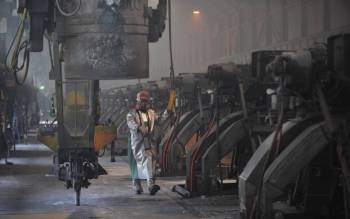
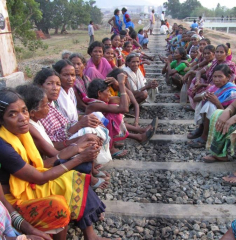
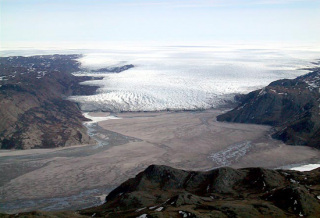
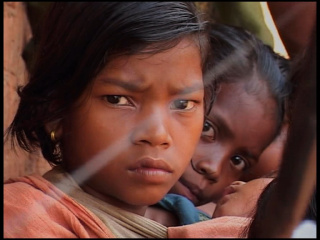

 Orissa is the most mineral rich state in India. It is green and fertile, a patchwork of tiny fields and thickly forested mountains with waterfalls tumbling over their red rocks. Like many of the world’s remaining areas of natural fertility, these mountains are largely populated by tribal peoples, which in India are called Adivasis – meaning literally ‘the original inhabitants’ – and are thought to be one of the oldest civilisations in the world. One quarter of the Orissan population are tribal, making it also the ‘poorest’ state in India according to the World Bank. But its figures judge well-being only by monetary exchange, and fail to mention that there has never been a famine recorded here, and that many Adivasis rarely use money, living in balance with the mountains, streams and forests which provide everything they need. In thanks for natures’ providence many Adivasi cultures worship the mountains on which they depend as Gods, and vow to protect their bountiful natural systems from damage. Some of the Orissan mountains are among the last ancient forest capped hills in India, thanks to the determination of tribal inhabitants against British colonial efforts to log them.
Orissa is the most mineral rich state in India. It is green and fertile, a patchwork of tiny fields and thickly forested mountains with waterfalls tumbling over their red rocks. Like many of the world’s remaining areas of natural fertility, these mountains are largely populated by tribal peoples, which in India are called Adivasis – meaning literally ‘the original inhabitants’ – and are thought to be one of the oldest civilisations in the world. One quarter of the Orissan population are tribal, making it also the ‘poorest’ state in India according to the World Bank. But its figures judge well-being only by monetary exchange, and fail to mention that there has never been a famine recorded here, and that many Adivasis rarely use money, living in balance with the mountains, streams and forests which provide everything they need. In thanks for natures’ providence many Adivasi cultures worship the mountains on which they depend as Gods, and vow to protect their bountiful natural systems from damage. Some of the Orissan mountains are among the last ancient forest capped hills in India, thanks to the determination of tribal inhabitants against British colonial efforts to log them.